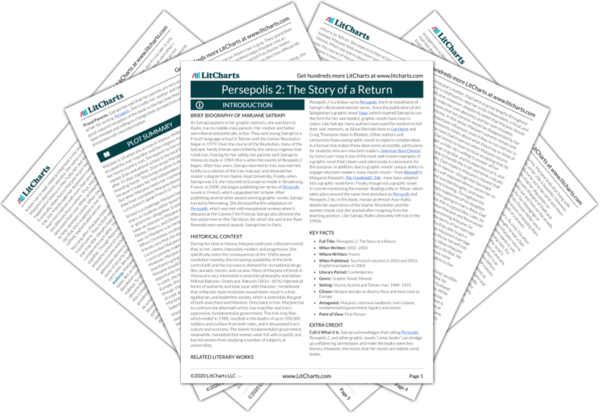Readers familiar with
Persepolis will remember that Marjane left Iran in the middle of the Iran-Iraq War. Back home, Marjane had to honor the martyrs (young soldiers, mostly) in various ways, including by hitting herself. Given all Marjane has seen and experienced, Shirin’s quick pivot to talking about silly things like lipstick and earmuffs makes her seem less patriotic and less Iranian to Marjane.
